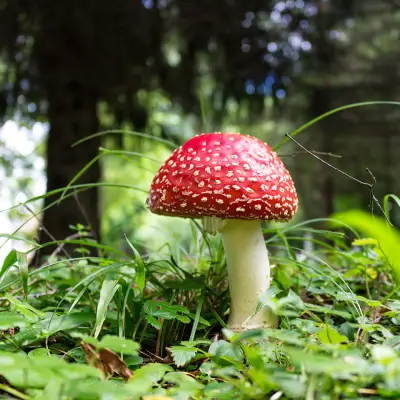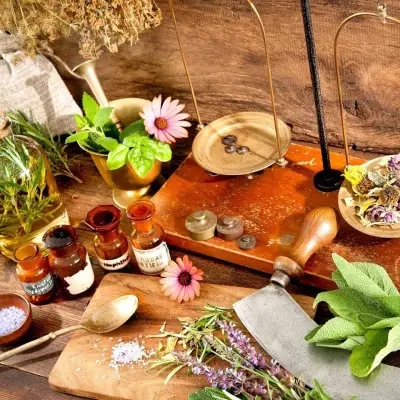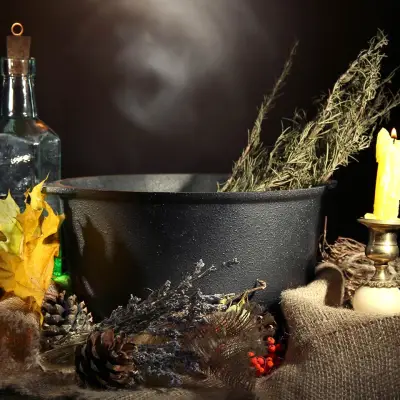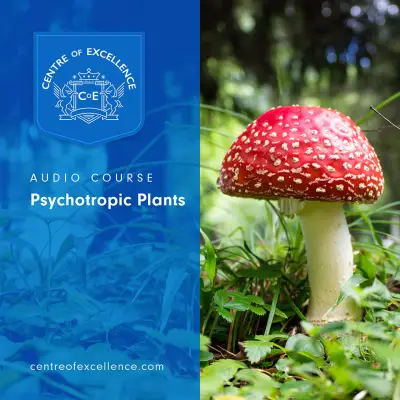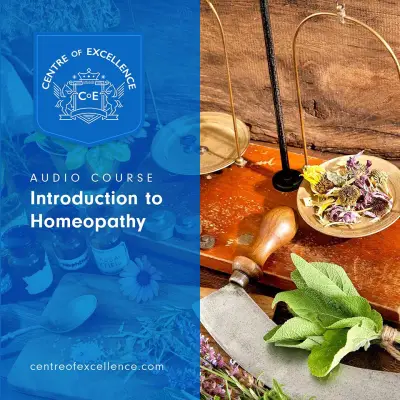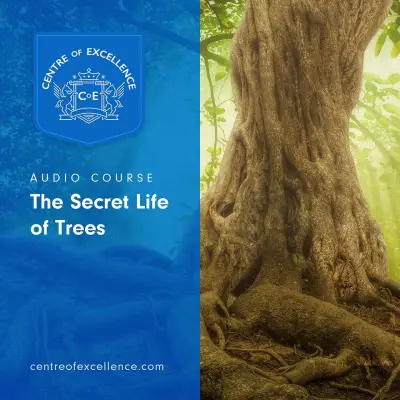If you’ve ever found yourself reaching for a calming chamomile tea to ease anxiety or applying aloe vera to soothe a burn, you’ve already dipped your toes into the world of herbalism. But have you ever stopped to wonder what is a herbalist exactly, or what they actually do? Perhaps you’ve considered exploring a more natural route to wellbeing or even thought about becoming a herbalist yourself.
This guide will give you a clear overview of who herbalists are, what they do, how to become one, and how safe and effective herbal practices really are.
Jump to:
- What is Herbalism?
- What is a Herbalist?
- What Does a Herbalist Do?
- Is Herbalism Legit?
- Methods Used by Herbalists
- Safety and Regulations: Is Herbalism Safe?
- How Do You Qualify as a Herbalist?
- Where Can You Learn Herbalism?
- Who Can Call Themselves a Herbalist?
- Is Herbalism Regulated in the UK?
- What is the Difference Between a Herbalist and a Naturopath?
- Is Herbalism in Demand?
- Do Herbalists Make Money?
- Can Herbalism Be a Hobby?
- Study Herbalism for £29
Recommended for you!
Best SellersWhat is Herbalism?
Herbalism, sometimes called herbology, is the practice of using plants for healing purposes. Its meaning refers to the study and use of herbs, especially in a traditional or natural medicine context.
It’s one of the oldest systems of healing in the world, with roots in many cultures — from Traditional Chinese Medicine and Ayurveda to Western herbal traditions. Though the tools may be ancient, modern herbalists use both traditional knowledge and contemporary research to inform their work.
What is a Herbalist?
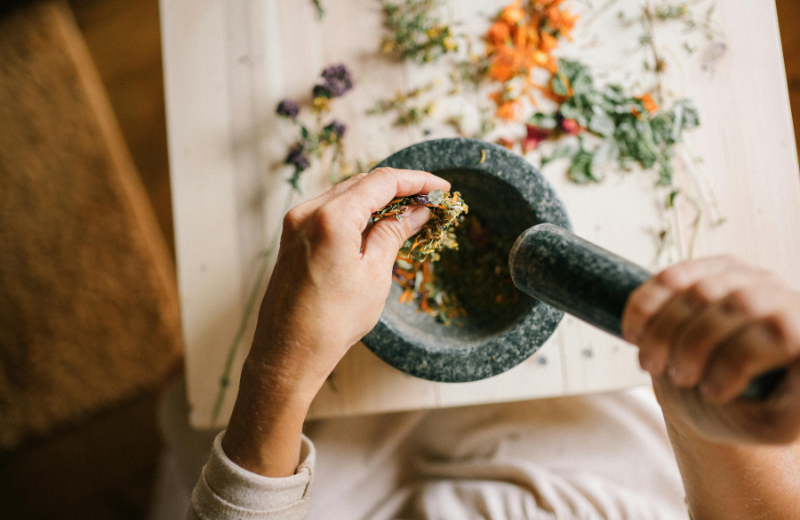
A herbalist is someone who uses plants and natural remedies to help support health and wellbeing. The definition can vary slightly depending on the tradition or context, but it generally refers to a practitioner who understands the properties of herbs and how they can be used therapeutically.
The herbalist meaning encompasses not just knowledge of plants, but an appreciation for how they interact with the human body — often with a focus on holistic healing. A holistic herbalist doesn’t just treat symptoms; they look at the bigger picture, including lifestyle, diet, and emotional wellbeing. This is why herbalism is considered a natural and holistic approach to health.
What Does a Herbalist Do?
You might be wondering, what does a herbalist actually do? In practice, herbalists work with people to support a variety of health concerns using natural remedies. This might include creating bespoke herbal blends, offering lifestyle advice, and recommending dietary changes alongside herbal support. Their work can include:
- Conducting consultations to understand a person’s health history and current concerns.
- Recommending specific herbs, tinctures, teas, or salves to support the body.
- Advising on diet and lifestyle changes to improve overall wellbeing.
- Preparing and dispensing herbal remedies.
- Keeping records and monitoring progress.
The goal is not necessarily to replace conventional medicine but to work alongside it where appropriate, supporting the body’s natural healing processes.
Is Herbalism Legit?
While herbal remedies aren’t a magic cure, many herbs have been extensively studied and are backed by scientific research for their benefits. For example, St. John’s Wort has shown effectiveness in managing mild to moderate depression, while ginger is widely used for nausea and digestive issues.
However, not every herb works the same for everyone, and results can vary. Herbalism is not a one-size-fits-all solution but rather a personalised and supportive approach to health. It’s a practice that actually does work — especially when practised by someone knowledgeable who understands how to use herbs safely and effectively.
Methods Used by Herbalists
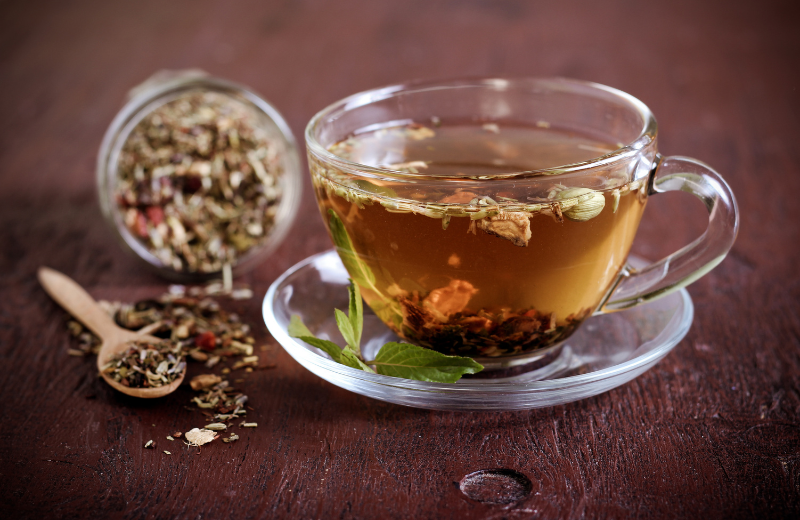
Herbalists use a wide range of methods to prepare and administer herbs, depending on the individual’s needs. These methods include:
- Teas and infusions – One of the simplest ways to consume herbs. Think chamomile or peppermint tea for calming and digestion.
- Tinctures – Alcohol-based herbal extracts that are highly concentrated and easy to dose.
- Capsules and tablets – For convenience, some herbs are dried and packed into capsules for daily use.
- Salves and balms – These are used externally for skin conditions, wounds, or muscular pain.
- Poultices and compresses – Often used for bruises, sprains, or inflammation, these involve applying herbs directly to the skin.
Each method has its own purpose, and a qualified herbalist will help you choose what’s best for your situation.
Safety and Regulations: Is Herbalism Safe?
One of the most important things to consider when practising herbalism is safety. When used properly, herbs are generally safe, but that doesn’t mean they’re risk-free. Just like pharmaceutical drugs, herbs can interact with medications, cause allergic reactions, and be harmful if misused.
This is why consulting with a trained herbalist is strongly recommended. They’ll understand appropriate dosages, possible interactions, and whether a particular herb is right for you. Always check with your GP if you’re on medication or have a pre-existing health condition before starting herbal treatment.
How Do You Qualify as a Herbalist?
If you’re wondering how to qualify as a herbalist, there are several paths to explore. In the UK, there is no legal requirement to be licensed to practise as a herbalist, but professional training is highly recommended.
Many herbalists study with accredited schools or complete recognised diplomas. Some go on to register with professional bodies like the National Institute of Medical Herbalists (NIMH), which requires in-depth training and clinical hours.
Although there’s no single best degree, subjects such as Herbal Medicine, Botany, or Health Sciences are highly relevant. Some universities in the UK offer BSc degrees in Herbal Medicine, which include clinical training.
Where Can You Learn Herbalism?

While you can technically be a self-taught herbalist, without structured education, you may miss crucial knowledge about safety, dosage, and ethics. Self-study can be a great start, but if you want to practise professionally, comprehensive training is best.
A useful starting point is our Master Herbalist Diploma Course, which is ideal for those looking to build a strong foundation in herbalism. It covers a wide range of topics, from the properties of individual herbs to how to safely prepare and use them. Upon completion, you’ll receive a diploma certificate that proves your knowledge in the area.
Who Can Call Themselves a Herbalist?
There’s often confusion about titles. In the UK, you can call yourself a herbalist if you have a base level of knowledge— but calling yourself a clinical herbalist or medical herbalist usually implies a certain level of training and registration.
A clinical herbalist usually has formal training and clinical experience, and works one-on-one with clients in a health setting. A general herbalist might have less formal education and may focus more on education or retail.
If you’re selling herbal products, you must comply with relevant regulations around health claims and product safety. So while you can call yourself a herbalist, doing so responsibly means getting educated and staying informed.
Recommended for you!
Best SellersIs Herbalism Regulated in the UK?
While the title ‘herbalist’ is not protected by law in the UK, the practice of herbal medicine is loosely regulated. Practitioners who are members of professional organisations are expected to follow strict codes of conduct and ongoing professional development.
If you’re wondering if you need a licence to sell herbal medicine, the answer depends on what you’re selling and how. If you’re selling traditional herbal remedies, you may need to comply with the Traditional Herbal Registration (THR) scheme. Always check with the Medicines and Healthcare Products Regulatory Agency (MHRA) to ensure you're meeting the legal standards.
What is the Difference Between a Herbalist and a Naturopath?
While both take a natural approach to health, there are some differences. A herbalist focuses specifically on using plants as remedies. A naturopath may use herbs but also includes other therapies like nutrition, massage, and homeopathy. Think of a herbalist as a plant specialist, while a naturopath is more of a general natural health practitioner.
Is Herbalism in Demand?
With growing interest in natural health, the demand for qualified herbalists is increasing. More people are turning to complementary therapies, whether to support chronic conditions or simply to live more healthfully.
Do Herbalists Make Money?
Herbalists can make good money, but income varies widely depending on experience, services offered, and business model. If you’re wondering how much herbalists make in the UK, estimates range from around £18,000 to over £40,000 annually, particularly for those who run successful private practices or offer courses and workshops.
Can Herbalism Be a Hobby?
Herbalism can absolutely be a hobby. Many people study herbalism simply because they love plants and want to learn how to support their own wellbeing naturally. Whether you grow your own herbs, make skincare products, or experiment with homemade teas, herbalism can be a deeply rewarding hobby. That said, hobbyist knowledge is no substitute for formal training if you intend to practise or sell remedies to others.
Study Herbalism for £29
If you’re curious about learning herbalism — whether as a passion or potential profession — there are many ways to start.
If you want a structured and comprehensive route, Centre of Excellence offers an excellent Master Herbalist Diploma Course, designed to take you from beginner to advanced knowledge. It’s fully online, flexible, and ideal for those who want to turn their interest into a recognised qualification.
You can currently access this course at a special discounted price of just £29.

